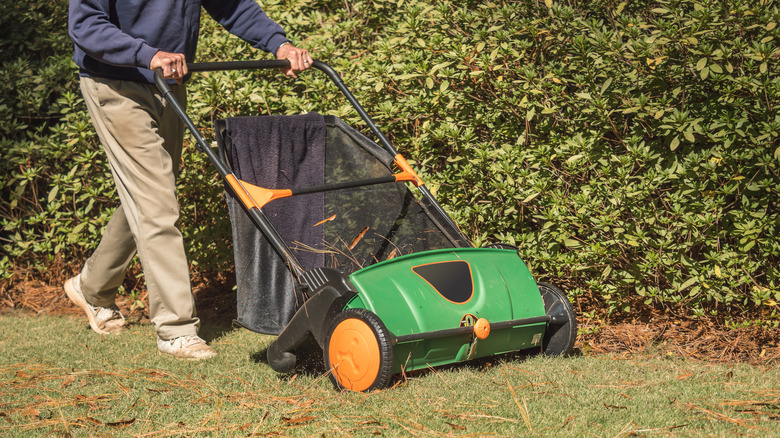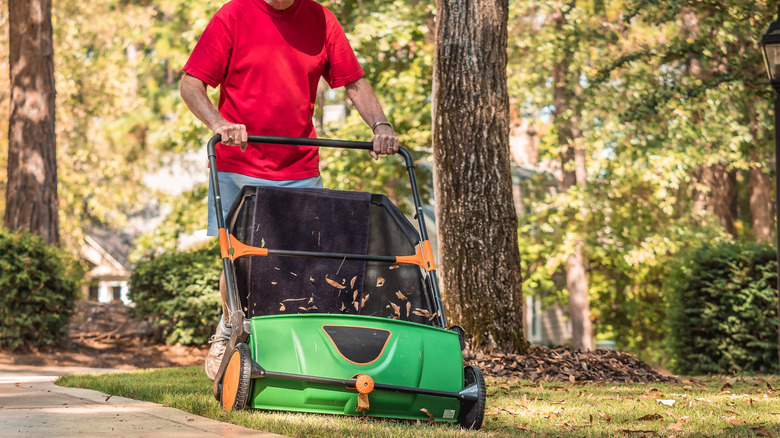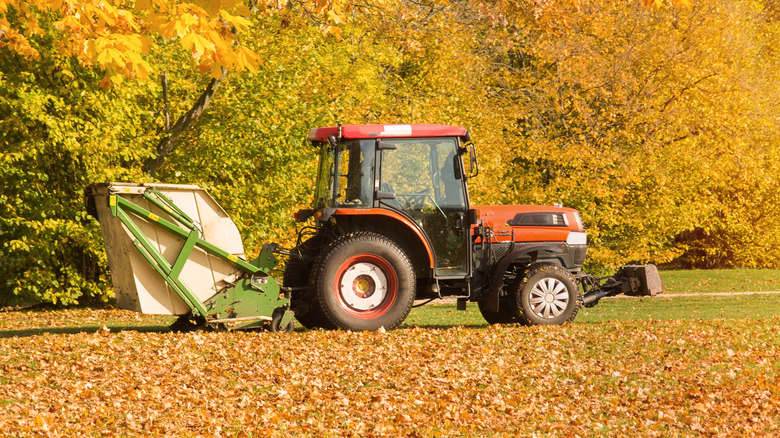How To Keep Your Lawn Tidy With A Lawn Sweeper
Even if you believe in mulching your grass clippings back into your yard, there may be times of the year when it's helpful to remove all the debris and give the grass a clean start. One of the best tools for this purpose is a lawn sweeper. It improves the look and condition of your yard by moving across the space and collecting multiple kinds of loose debris, including leaves, clipped grass, and sticks. The lawn sweeper does a lot of the same things as raking the yard in the autumn, but it makes raking the leaves easier, while also handling other debris.
The lawn sweeper rolls across the grass, using brushes to sweep up debris and forcing them into the collection area at the back. This tool does not use a motor to rotate the wheels or brushes. Instead, the movement of the wheels, as you push or pull the lawn sweeper, causes the brushes to spin and grab the loose debris in the lawn, before tossing them into the bin in the back of the unit.
You can walk behind and push the tool across the yard, similar to how you'd use a push mower. However, because of the force required, the more popular choice is to attach the lawn sweeper to the back of your lawn tractor, which pulls it along while spinning the wheels, automating the process of cleaning up your debris.
What are the benefits to using a lawn sweeper?
Because one of the biggest mistakes people make when mowing the lawn is bagging up the grass clippings, rather than mulching them back into the yard, you might wonder whether using a lawn sweeper is actually beneficial for the health of your grass. It's important to note that making use of this tool gives you a few more benefits than simply removing the grass clippings after mowing the yard.
This tool provides significant benefits in the autumn, when leaves and old grass could accumulate over the top of the lawn, possibly leaving the plants without access to sunlight. Additionally, a layer of old leaves and accumulated grass clippings may trap moisture underneath. This excess moisture may kill some of the grass, leaving you with bare or brown patches in the spring. Rather than raking the leaves and other debris by hand, the lawn sweeper makes the job go faster with less physical work than raking. And if you can tow the lawn sweeping tool, the job becomes a piece of cake.
This tool also dethatches, pulling dead grass away from the living areas and exposing more of the soil. If you plan to add seed to try to thicken the plants, dethatching is a key process, as it gives the seeds clearer access to the soil. Should you have fallen fruit, acorns, or small twigs in the yard, this tool picks them up as well, resulting in a cleaner space.
How to use a lawn sweeper
When you are preparing to use your lawn sweeper, start by picking the best time of the year to use it. Most people will use it in the autumn, as it can help you pick up the unwanted leaves and other debris that could hinder the growth of the grass the following spring. You may want to use it a few times in the autumn, depending on how many trees and fallen leaves you have on your property. Some use the lawn sweeper before they overseed the lawn as well, removing any accumulated thatch and other debris while exposing the soil.
Before deploying the lawn sweeper, you should walk the yard and collect any larger items. You don't want the dog's tennis balls or children's toys getting caught in the tool's brushes. You also should collect larger sticks that could jam in the brushes.
Next, mow your yard on the setting you typically use. Then set the lawn sweeper's brush height at the same height as you just mowed the grass. Tow or push the lawn sweeper back and forth, just like you would if you were mowing. Some people like to make a second pass, going at right angles to the patterns they used the first time. Keep an eye on the bin in the back. When it fills, stop and empty it, as a full bin will just cause the debris to drop back into the yard.


